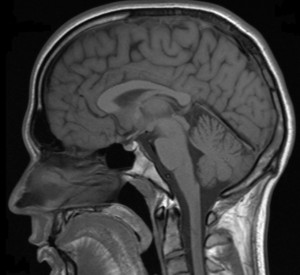Utah Closed Brain Injury Lawyer
 A closed brain injury can be defined such that the brain injury does not have any open wounds and the injury that has occurred has happened within the brain. In other words, the brain is injured but the skull has not been cracked. Closed brain injuries include contusions, concussions, and coup-contrecoup injuries.
A closed brain injury can be defined such that the brain injury does not have any open wounds and the injury that has occurred has happened within the brain. In other words, the brain is injured but the skull has not been cracked. Closed brain injuries include contusions, concussions, and coup-contrecoup injuries.
Table of Contents
Causes of Closed Brain Injury
The causes could vary but the most common causes of a closed brain injury are car accidents, slip and falls, or a blow to the head. Also, sudden jerks to the head can cause the brain to hit on the inside of the skull creating a closed brain injury. These happen as a result of a sports-related or occupational-related accident. A closed brain injury could result in a traumatic brain injury (TBI). When the brain is twisted or jolted inside of the skull, this can cause some of the brain’s nerves to be damaged and ultimately cause signals of the brain to not function properly, making the patient feel dizzy or have other symptoms.
Symptoms of Closed Brain Injury
Symptoms may not be as apparent as an open brain injury since the damage is within the skull. However, here are some symptoms to look for:
- Headache
- Dizziness
- Loss of consciousness
- Short term memory loss
- Dilated pupils
- Visual impairment
- Convulsions
- Nausea and vomiting
- Speech and language problems
- Emotional and behavioral changes
There are also some more serious symptoms that may occur from a closed brain injury. Here are some more severe symptoms to look for:
- Post-concussion syndrome
- Seizures
- Personality changes
- Cognitive disabilities
- Communication difficulties
- Changes in sensory abilities
- Coma
Treatment for a Closed Brain Injury
Like many brain injuries, the severity of the injury and the areas that were damaged as a result of the injury determines the treatment and recovery of the injury. Recovery can range from bed rest and non-prescription pain killers to anti-seizure drugs to reduce brain pressure or even surgery to drain blood clots that may have occurred due to the swelling on the brain after the accident. If coma or unconsciousness occurs after the brain injury, this will also be taken into account when assessing the recovery of the victim. The longer the unconsciousness, the less likely the patient will be able to regain full normal functions of their body or brain. If the patient awakens after a short amount of time, the more likely they will be able to recover with the assistance of therapy to help with physical and cognitive losses. If you or your loved one has suffered from a closed brain injury as a result of someone else’s negligence, contact Christensen & Hymas to help you with your personal injury case. You may be compensated for the pain and suffering you have endured from the injury. Call to make an appointment today at (801) 506-0800. Our competent and knowledgeable lawyers will work hard to get you what you deserve.
Image “Mrt” copyright by Helmut Januschka.
Free Consultation
Learn your Rights. Get Answers. Free.